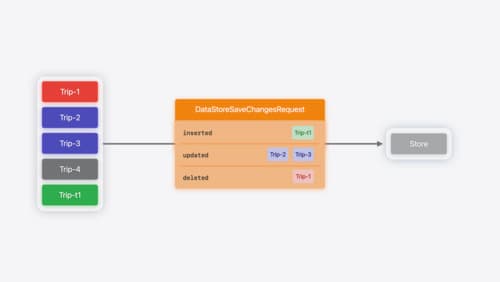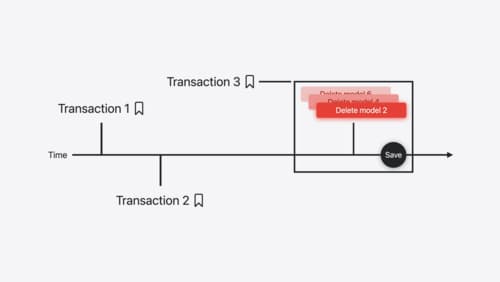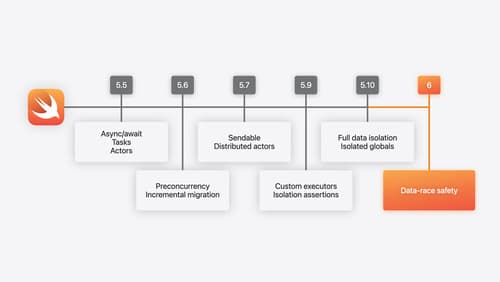What changes will ios18 bring to SwiftData?
Asked on 2024-08-04
1 search
iOS 18 brings several significant updates to SwiftData. Here are the key changes:
-
Custom Data Stores: SwiftData now supports custom data stores, allowing you to use alternative backends like SQLite, remote web services, or even collections of JSON files. This flexibility enables you to use SwiftData's API with a variety of storage backends (Platforms State of the Union).
-
History API: SwiftData introduces a history API that tracks all changes in the underlying data store. This is particularly useful for tracking local changes that need to be synced to a remote web service (What’s new in SwiftData).
-
Index and Unique Macros: New macros like
#Indexand#Uniquehave been added. The#Indexmacro makes queries more efficient by optimizing the storage and retrieval of commonly queried properties. The#Uniquemacro ensures that a set of properties have no duplicate entries (Platforms State of the Union). -
Schema Macro: A new schema macro helps avoid duplicate models, making it easier to set up and configure model containers (What’s new in SwiftData).
-
Expression Macro: This new macro helps optimize queries with complex filters, improving performance (What’s new in SwiftData).
-
Previewable Macro: The new previewable macro makes it easier to work with your queries while iterating on views (Platforms State of the Union).
-
Model Container Customization: There are new ways to set up and configure model containers, providing more flexibility in how you manage your data (What’s new in SwiftData).
-
Tracking Model Changes: SwiftData now provides access to the history of changes in a datastore, making it easy to inspect recent changes. This is useful for tracking local changes that need to be synced to a remote web service (Track model changes with SwiftData history).
For a detailed overview, you can watch the session What’s new in SwiftData.

Create a custom data store with SwiftData
Combine the power of SwiftData’s expressive, declarative modeling API with your own persistence backend. Learn how to build a custom data store and explore how to progressively add persistence features in your app. To get the most out of this session, watch “Meet SwiftData” and “Model your schema with SwiftData” from WWDC23.

Track model changes with SwiftData history
Reveal the history of your model’s changes with SwiftData! Use the history API to understand when data store changes occurred, and learn how to use this information to build features like remote server sync and out-of-process change handing in your app. We’ll also cover how you can build support for the history API into a custom data store.

What’s new in Swift
Join us for an update on Swift. We’ll briefly go through a history of Swift over the past decade, and show you how the community has grown through workgroups, expanded the package ecosystem, and increased platform support. We’ll introduce you to a new language mode that achieves data-race safety by default, and a language subset that lets you run Swift on highly constrained systems. We’ll also explore some language updates including noncopyable types, typed throws, and improved C++ interoperability.
